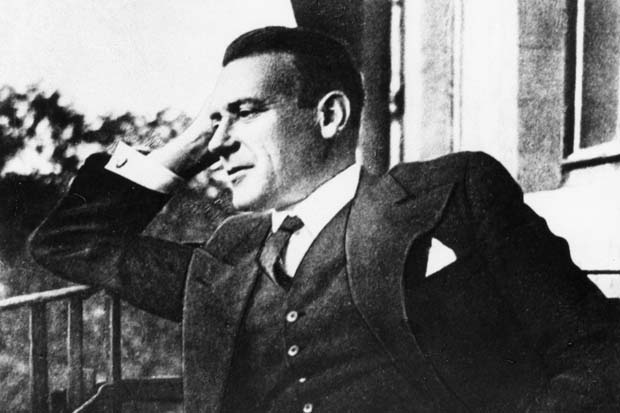If ever I found myself at a pretentious literary party obliged to play David Lodge’s ‘Humiliation’ game and to confess to the great books I’ve never read, I’d only escape the ignominy of winning (by being the most ignorant) because of the radio and the almost weekly possibility of hearing yet another classic adapted as a drama or read at bedtime. The nuances of the novel may be lost in translation — the depth of characterisation, the complexities of the plot, its many threads and diversions — but a good adaptation will capture the essence, the true feeling of the original and take us there in our imaginations as effectively as reading from the page, if by a very different route.
Take Lucy Catherine’s The Master and Margarita, adapted from Mikhail Bulgakov’s classic for Radio 3 as a one-off drama on Sunday night and produced by Sasha Yevtushenko. To my shame, I’ve never read what many consider to be one of the great Russian novels, if not the greatest, but it’s always been on my list of must-but-probably-never-reads. It’s a fearsomely complex book (written in the 1930s but not published until 1967, decades after Bulgakov had died), magic realist before its time, and so almost perfect for radio. There are two converging scenarios — the cowardly literary scene in Moscow under Stalin and the failure of Pontius Pilate to reprieve Yeshua (Jesus Christ) in the face of the determination of the Sanhedrin in Jerusalem to get rid of this wandering prophet with his heretical ideas. These two very different worlds are brought together by the Master, who has written a novel about Pilate and the wicked workings of Satan, in the person of Professor Woland, and his henchmen, the absurd but vicious Koroviev and his violin-playing cat Behemoth, aided by the alluring but deadly Hella.
An alternative dimension — disappearing writers, naked women flying through the air, showers of shoes, handbags, lipsticks —is opened up by Woland’s antics, especially his hugely popular black-magic act, all made very possible on radio through the aural soundscape created by the specially composed music of Stephen Warbeck and the work of Colin Guthrie and Caleb Knightley. Warbeck, who has won Oscars for his film music, was attracted to the far less lucrative world of radio because as listeners we become ‘part of the landscape’ (as opposed to in the cinema where we remain alongside what’s happening). This certainly occurred on Sunday, listening in a darkened room at dead of night as Woland (played with sinister panache by Anton Lesser) enticed Margarita (the seductive Anne-Marie Duff) to sell her soul and become his hostess at the monsters’ ball.
Bulgakov experts would probably be horrified by the compression, the loss of individual insights and textual delights page-by-page, and yet the entirely sane madness of his vision became utterly believable in this gripping adaptation. Almost unbelievable earlier on Sunday was the appearance of the former SAS soldier and now multimillion-selling author Andy McNab on Private Passions, Radio 3’s version of Desert Island Discs. It’s true that celebrities not usually associated with classical music have often been guests on the show, dreamt up and still hosted by the composer Michael Berkeley. The surprise, though, has not been their presence, but their very real connection with, and ability to talk about, the standard (and not-so-standard) Radio 3 repertoire. Not so McNab, whose billing began with the story of how he was found abandoned as a baby in a Harrods carrier bag on the steps of Guy’s Hospital, setting the tone for the programme — storytelling rather than music-making. It turns out that Berkeley had heard McNab at a recent literary festival confessing that the only thing to make him cry was opera. Berkeley wanted to know why: ‘It’s the story, the live performances, the emotion…’
After playing us a track from Genesis, ‘Los Endos’, the piece of music that turned him on to classical, McNab told us, ‘That song cost me six points in one day on the A303 coming from London to the West Country.’ He was so pumped up by the music he forgot about the speed cameras. We discovered how he ‘loved every minute’ of Handel’s Messiah and although he’s never seen Puccini’s Turandot he just loves ‘Nessun dorma’: ‘I defy anyone to listen to that and not get revved up.’ The only surprise in his seven selections was his inclusion of a piece of Gregorian plainchant he first heard while stationed in Herefordshire close to Belmont Abbey. McNab was taught Swahili at the abbey by the monks, former missionaries in Africa.
It sounds awfully snobbish to say so but this might just as well have been DID for all the insight it gave into either McNab’s love of music or the music itself. No doubt it’s all part of the drive to make Radio 3 more accessible, down with the people. But at what cost to credibility? Berkeley sounded just as uncomfortable as the cast of The Archers now do every night. Life in Ambridge has become so absurd, so weirdly and condescendingly false.






Comments